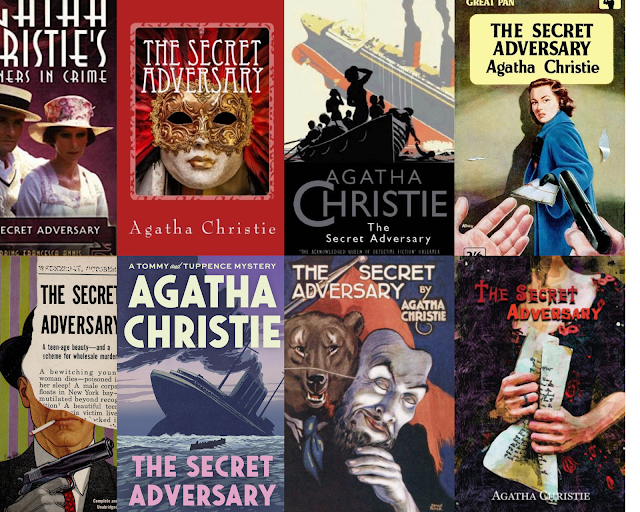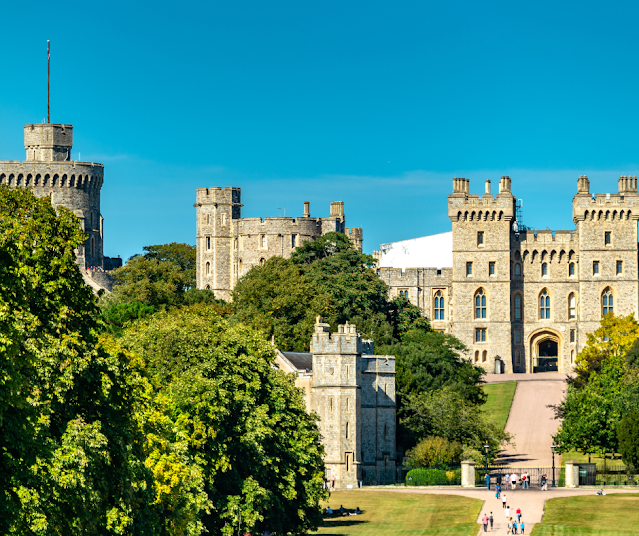Einstein once said:
Weak people revenge.
Strong people forgive.
Intelligent people ignore.
I've been thinking of our royal family this week. Well, in fact, for many weeks since, but especially this week as that terribly self-indulgent documentary is released by Netflix.
If you've ever experienced life with a narcissist and you've been following the royal drama that is Harry and Meghan, you may have started to feel something awfully familiar in the narrative coming out of Montecito, but not been sure what it was.
"By the pricking of my thumbs, something evil this way comes." A quote by Agatha Christie.
I recognised it.
I didn't see it at the beginning. Like most of Great Britain and the Commonwealth, we saw Meghan as a breath of fresh air in the royal family, an exciting addition, young, modern and with Prince Harry being one of the most popular British princes at the time, there was huge bonhomie and elation to see him finally find someone and be happy. What an amazing asset they could have been. What an incredible platform for change and good they could have had. Britain welcomed her with open arms.
 |
| Mark Jones, CC BY 2.0 <https://creativecommons.org/licenses/by/2.0>, via Wikimedia Commons |
How sad are the words, could have been and could have had.
I could write entire essays on what my opinion is on this situation, and some wonder why I am interested at all, why does it matter to me? Why do I take up brain space thinking about these people I've never met and who don't live in my country.
It matters because the royal family is tied up with our democracy. The greatest (though flawed) form of democracy that exists in our modern world in my opinion. New Zealand has a legal binding to the UK, from our historic dealings with them, and apart from that, when you grow up learning about the royals and seeing them on everything it feels like, as Harry rightly said in the Netflix documentary, they feel like an extension of our own family. The Royal family are non-political and as Queen Elizabeth kept reiterating, they are there to serve the public. The royal family do an incredible amount of work with charities and awareness around issues impacting society.
I, for one, will not stand by and be silent in this audacious attack against our democracy and our hard-working royal family by an American production company and two people who feel grieved against their own family.
I wasn't going to watch the Harry and Meghan show on Netflix. I was steely determined to NOT watch it, but in the end, I had no self-control and pressed play the minute it dropped onto our screens. It's like watching a train-wreck in slow motion and I don't watch because I have some kind of pleasure in seeing it happen, I watch because I care about what happens to our royal family and especially to the Prince and Princess of Wales who do not deserve the vitriol or underhanded comments being levelled at them. They are hard workers and appear to be very genuine, caring, kind people trying to do their best in a role that has been thrust upon them and who will one day make a splendid King and Queen.
I do want to talk about revenge.
Meghan, and it must be said, Harry too, seem to insinuate a lot with barbed remarks. It's quite a cowardly way of getting revenge, especially knowing that the royal family can't fight back. We used to call that cowardly behaviour when I was growing up. Nowadays its called being a bully.
But regardless of all the rhetoric, today I'm not here to discuss the sad downward spiral of Harry and Meghan's character in the eyes of the world, I'm here to talk about narcissism and to raise a question I've been mulling over for a few weeks now.
There has been a lot of talk online and in news articles and social media from royal commentators and authors and in-the-know people about what King Charles III needs to do. Most people are saying, even calling for the King to strip them of their titles, to not 'keep calm and carry on' as has been the tradition of the royal family in the face of criticism, but rather now is the time to speak up, the time to defend themselves.
I've been thinking about this and thinking back to my own experiences with an alleged narcissist, in a public arena, albeit a smaller one than this world stage the royals are on. What would I do?
If I was in a position to give advice what would my advice be?
Dealing with a narcissist is not something to be undertaken lightly. Responding to a narcissist is like walking across broken glass in bare feet - full of dangers and hidden threats as well as obvious threats.
At first I thought that for sure the royal family would have to say something in their own defence this time. The amount of lies and fabrications brought against them are staggering (well documented in other places). The audaciousness of Meghan and Harry is staggering. The complete un-self-awareness is staggering.
But the general rule with narcissists is to ignore. The term widely used for this is to 'grey rock'.
What is a grey rock? It is stone. It is dull, it is immovable. It doesn't talk. It doesn't move.
Should the royal family ignore this time?
Yes. They should.
The advice is solid to 'grey rock', ignore the narcissist. To give them any response at all is to give them pleasure. To respond is to give fuel. If the royals want this to go away, the best advice is..... ignore. A narcissist cannot stand to be ignored.
Narcissism is an extreme selfishness but it is also an extreme low self worth. The narcissist believes deep down in their subconscious core that they are worth nothing, so they manufacture, manipulate, strive to prove they are worth something, so if you ignore them, you are showing them that their worst fears about themselves are valid and it does two things....
1. It sets them on a path of revenge at you.
2. It ultimately silences them and they will move on to their next fuel for validation (or next victim).
They may still occassionally fire arrows at you, but those arrows are never as effective as they once could have been.
As it appears in this documentary, Harry and Meghan's obvious hatred and jealousy of the royal family practically oozes out of their pores. You have to know how a narcissist works to see it. Don't be fooled by the jaunty narrative these two would have you believe. It's there in the snide little remarks......
Example:
"Even when Will and Kate came over, and I met her for the first time, they came over for dinner, I remember I was in ripped jeans and I was barefoot. Like, I was a hugger, I've always been a hugger. I didn't realise that that is really jarring for a lot of Brits. I guess I started to understand really quickly that the formality on the outside carried through on the inside." quote by Meghan Markle in the Netflix documentary, 'Harry and Meghan'.
Not only is this culturally insensitive, it also demonstrates a disrespect for other people's personal boundaries. It also makes out as if the Prince and Princess of Wales are cold, unfriendly people.
It's there in the barbs against members of the royal family.
Example: the very disrespectful demonstration of her supposed courtesy to the late Queen Elizabeth II.
It's there in 'H'. Narcissists devalue. You are an extension of them. You have no identity. By calling Harry 'H' is devaluing his identity, it reduces him to a letter of the alphabet.
It's there in body language. It's there in the manipulation of the media and its viewers. It's there in the exploitation of the word 'racism'.
Revenge is an inevitable step in a narcissist's cycle. It's the final shot that a narc has to shoot. It's when they know the game is over, they have lost the game, and there is nothing more they can do, so they go for broke. They fire everything they have at their target, the enemy of their power to control; in this case, the Crown; the King and the Prince and Princess of Wales and by extension, the people of Great Britain.
When a narcissist reaches this step, they have metaphorically dug their own grave and are about to fall into it.
So, I say again to anyone listening.
Ignore.




















.png)

.png)

















